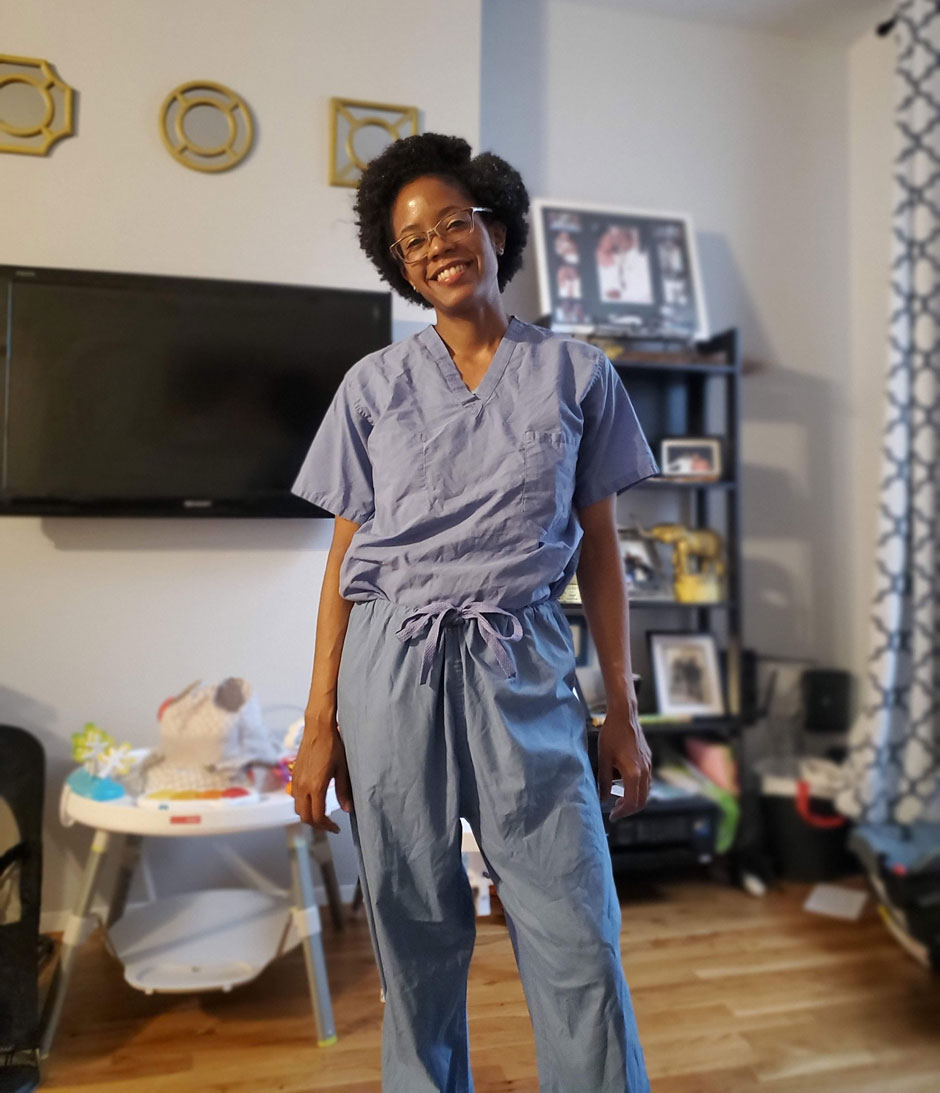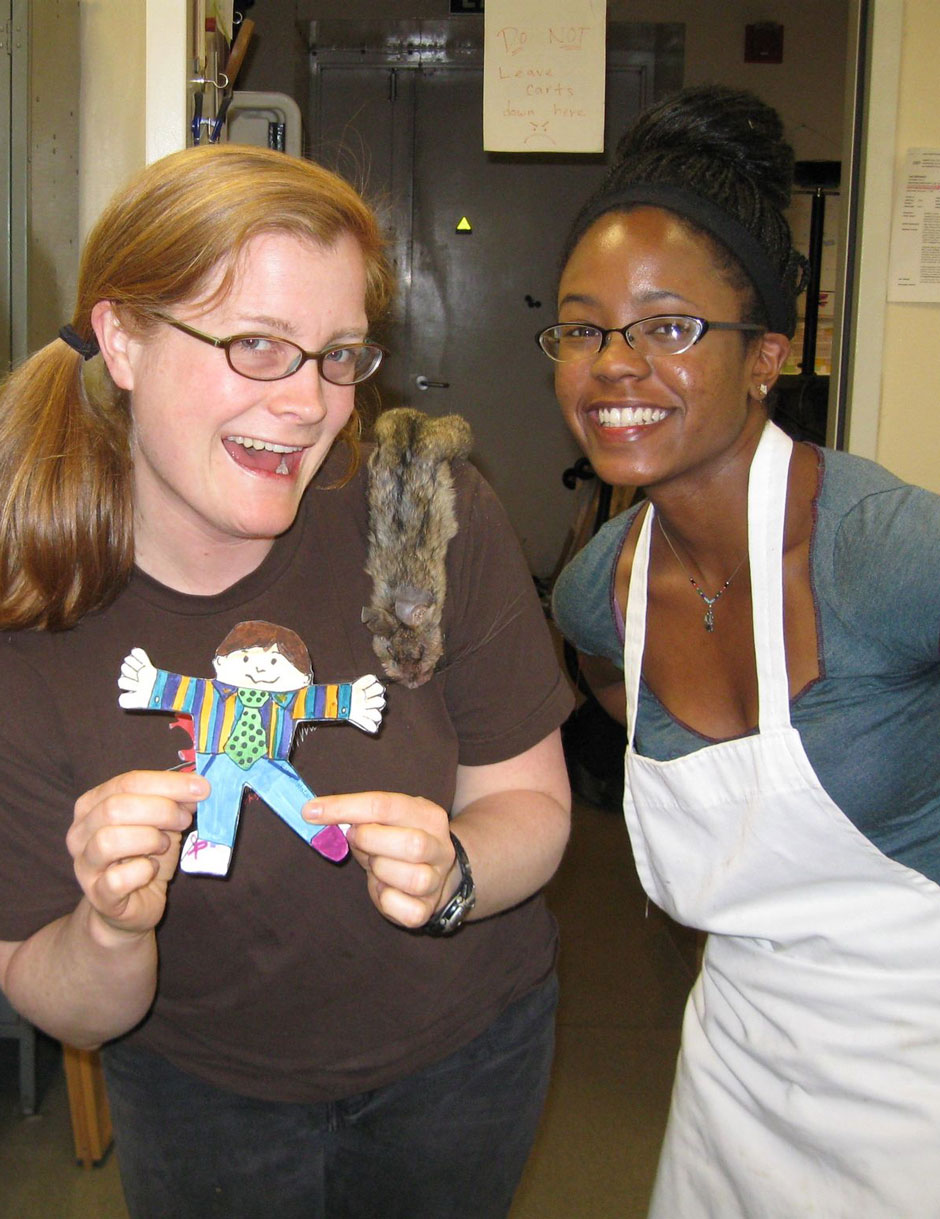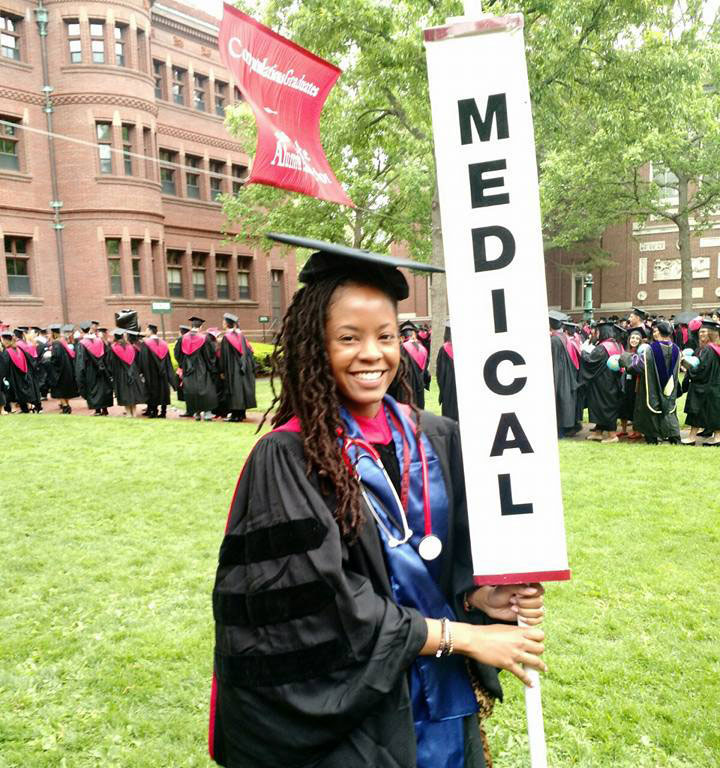
Physician Shanna Tucker uses education to stop disease before it starts
By Rachel Henderson
 Tucker during her residency at Weill Cornell Medicine. |
When the COVID-19 pandemic first exploded in New York City, MCB alum Shanna Tucker, MD (BA 2010) was working in a clinic outside of the hospital as part of her residency at Weill Cornell Medicine. She and her colleagues realized that they could play an important role by keeping their patients out of the hospital, if possible, so that emergency rooms did not become overwhelmed. They focused on triaging sick patients to determine who needed to go to the ER and who could be treated remotely. They also learned all they could about COVID-19 to share with their patients. “We realized how important it was to educate patients, especially those who were healthy at that time,” she says.
Disease prevention through patient education is a big part of Tucker's approach to medicine. Her interest in medicine began when she was a child and saw family members suffer from preventable conditions such as high blood pressure and diabetes. "I always wanted to know more so that I could help people like my family members who had these diseases," she says.
This early experience contributed to Tucker's desire to go into primary care. In her internal medicine residency at Weill Cornell Medicine, she completed the Primary Care Track, where she saw patients at a federally qualified health center (a nonprofit health center that serves medically underserved communities) in Queens. Early in her residency, she realized that by helping her patients lose weight, she could treat the underlying cause of many obesity-related diseases. Tucker decided to get specialized weight management training so she could learn how to help her patients more effectively — beyond the generic advice to “eat healthy and exercise”. She recently began an obesity medicine fellowship at New York University.
 Tucker (right) as an undergrad in the MVZ with one of her research mentors Monica Albe (left). |
Tucker says that when she first came to Berkeley as an undergraduate, she found the coursework difficult compared to her high school. But the support and encouragement she received from the Biology Scholars Program (BSP; a program that supports underrepresented biology students) and her research mentors, Monica Albe (formerly at the Museum of Vertebrate Zoology) and George Bentley (professor of integrative biology), boosted her confidence, which helped her succeed. She says that Albe and Bentley “saw more potential in [me] than I could see,” and that type of mentoring “is especially important for students from underrepresented backgrounds because they often don't have examples to go by” in science or medicine.
BSP opened up a valuable opportunity for Tucker by connecting her to the Mentoring in Medicine & Science internship, which she was able to participate in because it was paid, unlike many other internships. “[BSP helped me] in so many ways and at so many steps of the path,” she says, noting that BSP’s study groups and friendly environment where other students “felt like family” were particularly important to her success at Berkeley.
 Tucker at her graduation from Harvard Medical School. |
After graduating from MCB, Tucker went on to earn her MD from Harvard Medical School. She says that having a diverse and supportive professional community continues to be important to her as a physician — both personally and because it leads to better patient care. She points out that when physicians have a similar background to their patients, it can increase trust and decrease misunderstandings. In addition, “If [physicians] come from different backgrounds, we can share [our] experiences in terms of cultural differences” when discussing patients, she says, resulting in better training for physicians and higher quality of care overall.
Tucker’s goal is to continue to use education as a tool to fight disease — whether chronic diseases that have plagued humanity for a long time, or newcomers like COVID-19.
Back to Main Fall 2020 Newsletter Page
| Connect With Us! | ||||
MCB Twitter |
 MCB Facebook |
 LinkedIn Postdocs, PhDs, or Undergrads |
 Cal Alumni Network |
 Give to MCB |
